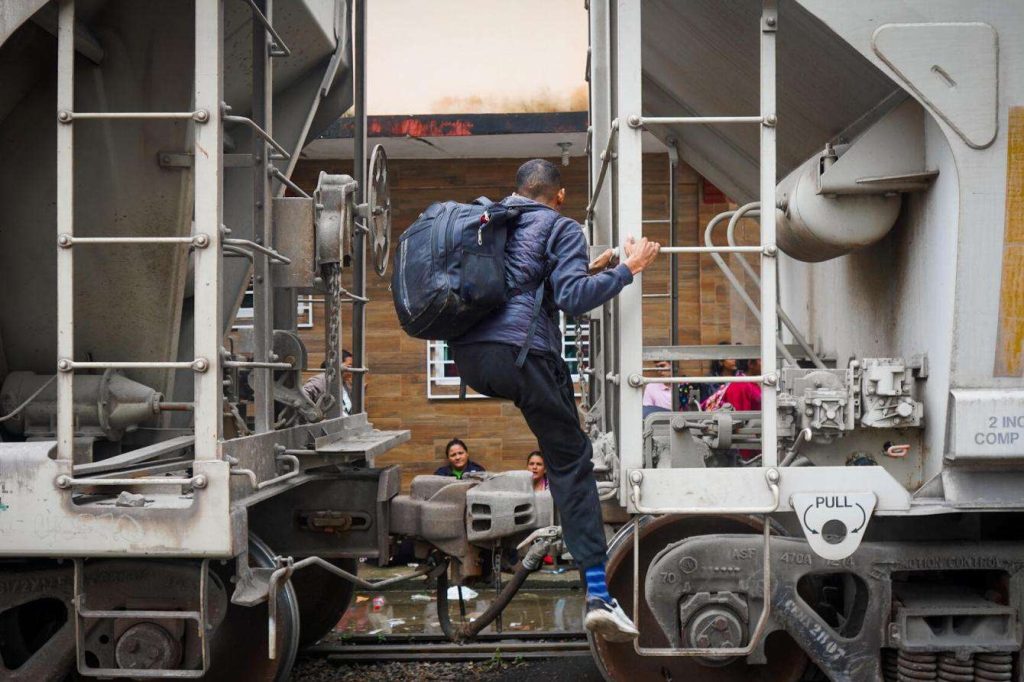The recent executive orders on migration from the U.S. administration leave hundreds of thousands of people along the Latin American migration corridor in even greater uncertainty, exposed to heightened risks on a route already marked by extreme violence, Doctors Without Borders (MSF) warned today. MSF teams in Mexico are already witnessing the harmful effects of the Closure of the U.S. Asylum Process and political measures on the physical and mental health of many of their patients.
MSF teams in Mexico are already witnessing these measures’ effects on the physical and mental health of many of their patients.
“The elimination of the (Customs and Border Protection) CBP One scheduling application on January 20, one of the few tools available for migrants to seek asylum in the United States, represents a severe blow to the protection of human rights for migrants and asylum seekers,” said Adriana Palomares, General Coordinator of MSF in Mexico. “This irresponsible decision will have both immediate and long-term repercussions for countless individuals, threatening their lives, health, and well-being.”
MSF calls on governments in the region to urgently adopt humane migration policies that protect the rights, safety, and dignity of all individuals on the move.
Initially launched in 2020 to streamline cargo inspections at the U.S.-Mexico border, the CBP One app expanded in January 2023 to facilitate asylum appointments for unauthorised migrants fleeing violence, poverty, or persecution. By May 2023, it became the sole pathway for asylum requests at U.S. ports of entry under the Biden administration. Over the past year, nearly one million migrants—approximately 1,450 daily—used the app to secure screening appointments.
Though imperfect, the app provided a critical, albeit limited, avenue for asylum seekers to avoid hazardous routes and the perils of human trafficking networks. Its abrupt shutdown leaves many of the most vulnerable, including survivors of violence and persecution, with no legal or safe alternatives.
“A patient we treated this week suffered an acute anxiety attack after her previously approved asylum appointment in early February was canceled,” said Ramón Márquez, coordinator of MSF’s Comprehensive Care Center (CAI) in Mexico City. “Our therapeutic teams are ramping up interventions to support those in emotional crisis.”
The closure of the app has left migrants stranded in high-risk areas in Mexico, vulnerable to extortion, human trafficking, and other forms of violence. In Coatzacoalcos, a Venezuelan migrant named Silvia, who had been traveling for months, described the collective anguish:
“It’s a deep sadness. This process has been anything but easy. We’ve risked our lives and exposed ourselves to unimaginable dangers with our children, all for the chance at a better future for our families,” she shared after receiving care at an MSF clinic.

CBP One’s closure increases people’s vulnerability in high-risk areas
“These policies dehumanize and endanger people on the move,” emphasized Adriana Palomares. “We’ve seen the devastating effects of programs like ‘Remain in Mexico,’ now being reintroduced, which forced asylum seekers to survive in hostile environments without access to basic services. Migration and seeking asylum are rights, not crimes. Governments across the region, including the U.S. and Mexico, must urgently implement migration policies that prioritize people and their protection.”
In 2024 alone, MSF teams assisted over 700 survivors of sexual violence in Mexico and hundreds more in Central America. With the dismantling of CBP One, migrants are now left in an unbearable limbo, trapped in environments rife with violence and exploitation, and stripped of their basic human rights.
MSF calls on governments in the region to urgently adopt humane migration policies that protect the rights, safety, and dignity of all individuals on the move.












